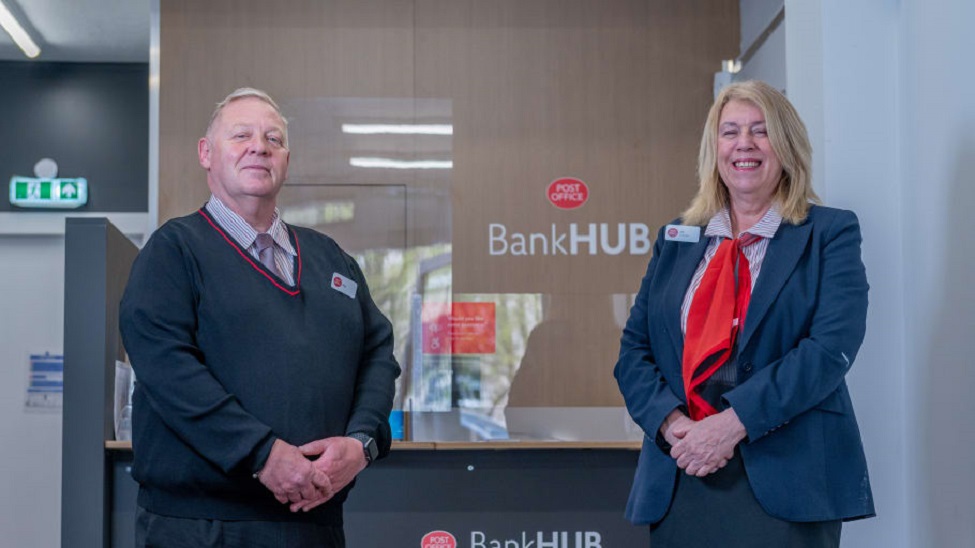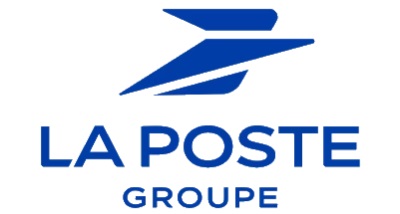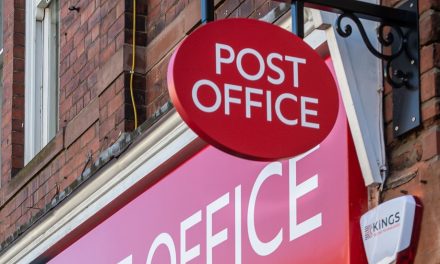
UK Post Office: providing vital cash access services for millions of people

The UK Post Office has confirmed the expansion of its BankHub network, as part of a landmark industry commitment to protect cash and banking services across the UK. The decision is a part of a new, community-focussed approach to protect cash access, facilitated by the Cash Action Group (CAG). I
n addition to the extended support to the first 2 BankHubs in Cambuslang and Rochford, additional Hubs will open during 2022, with more to follow into 2023.
The company, which is the UK’s biggest retailer with 11,500 branches, has also announced that it is ready to deploy new dedicated cash services into 30 existing Post Offices next year to increase capacity within the network and improve customer experience in high volume cash areas.
In April 2021, the first ever BankHubs launched as part of the Communities Access to Cash Pilots (CACP) initiative, as a potential solution to help keep cash access sustainable. The impressive success of that programme has informed this decision.
Around eight million adults have said they would struggle day to day without cash access, and 1.4 million people do not have a bank account and rely on cash to survive. 55% of small and medium sized enterprises (SMEs) do not accept cards and rely entirely on cash payments, meaning they need somewhere convenient and secure to deposit their takings. Yet access to cash is rapidly declining, with widespread bank branches closures across the country.
The existing BankHubs in Rochford and Cambuslang provide local customers with basic banking and cash services, as well as dedicated rooms where they can see community bankers from their own bank. Of all the solutions trialled as part of CACP, BankHubs offered the widest range of services, and received by far the most positive feedback from both consumers and businesses – with communities using the facilities provided over 10 times as frequently as other solutions. As a result of the overwhelmingly positive response, last month it was announced they would continue to run until spring 2023, at least.
This new agreement has been crafted by an industry taskforce of major banks, Post Office, LINK and consumer groups – called Cash Action Group (CAG) and represents the most comprehensive commitment to date to ensuring sustained cash and banking access. In accordance with the deal, any community which faces the closure of it last bank will have its needs independently assessed to find the most appropriate solution to meet the cash needs of that community as a whole. The group was convened earlier this year and further interventions are planned from 2022 and beyond. It is the highest level agreement so far, with banks agreeing to share physical infrastructure services in a trusted High St location – typified by the Post Office brand – alongside the opening of new ATMs and the national roll-out of cashback without purchase.Post Office branches already provide critical cash deposit and withdrawal services for millions of personal and business customers every week from 11,500 branches across the UK, with 99% of the population living within three miles of a Post Office.
Post Office is the only existing cash network in the UK with the scale of infrastructure, robust scalability and security in place to manage this role in the cash market. Its services allow customers to withdraw cash to the penny over the counter in branches, which are typically open for longer and in more convenient locations for customers to access.
Nick Read, CEO at Post Office, said: “The Post Office already plays a critical role in local communities, so we are very pleased to have partnered the banks in developing innovative solutions to meet community cash needs. I welcome today’s announcement and the results of the Community Access to Cash Pilots. It is very positive that the Post Office and banks continue to work together effectively to deal with such a fundamental issue. We look forward to working with the industry to develop our offer further – providing vital cash access services for millions of people.”













